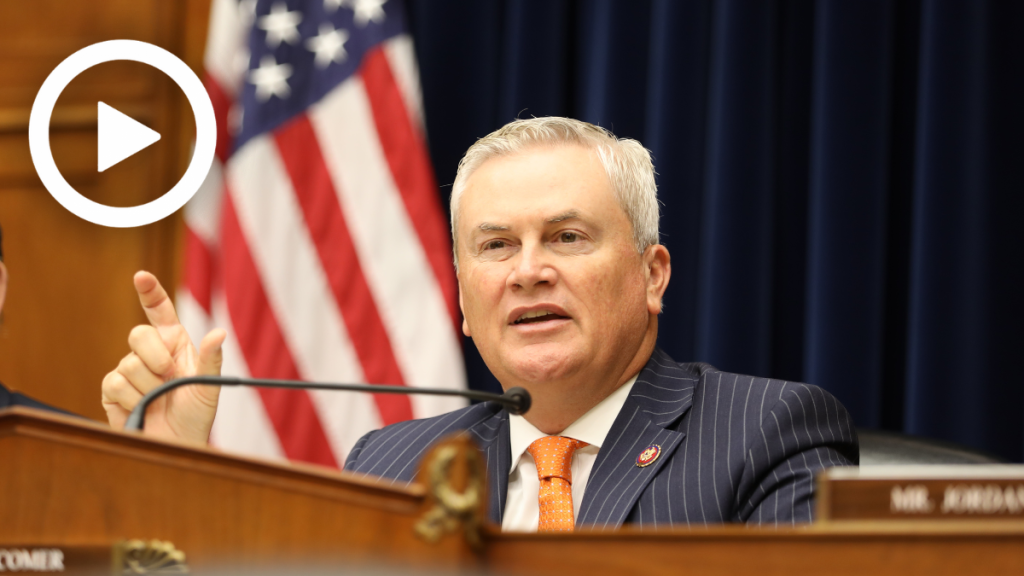WASHINGTON—Today, House Committee on Oversight and Accountability Chairman James Comer (R-Ky.) delivered opening remarks at a full committee hearing titled “The Role of Pharmacy Benefit Managers in Prescription Drug Markets Part III: Transparency and Accountability.” In his opening statement, Chairman Comer detailed how the House Oversight Committee has obtained over 140,000 pages of documents and communications exposing Pharmacy Benefit Managers’ (PBMs) anticompetitive policies and their role in rising drug prices. The information, outlined in an Oversight Committee report released today, shows how the three largest PBMs—CVS Caremark, Express Scripts, and OptumRx—have prioritized deliberate pricing tactics to line their own pockets, which have increased prescription drug costs, hurt independent pharmacies, and harmed patient care. He concluded that the House Oversight Committee will continue to seek bipartisan solutions to hold PBMs accountable for undermining the health of all Americans.
I want to welcome everyone to today’s hearing on the role of Pharmacy Benefit Managers in Pharmaceutical Markets.
.
This is the third in a series of hearings discussing pharmacy benefit managers, or PBMs, and their role in the pharmaceutical market.
.
At our first hearing, we heard from practitioners who interact with PBMs daily and a transparent PBM executive.
.
They shared how PBMs affect their ability to help patients and can negatively impact patients’ health.
.
Dr. Miriam Atkins, an oncologist in Georgia, discussed how PBMs dictate which drugs a patient can use and require the use of mail-order pharmacies.
.
Kevin Duane, an independent pharmacist in Jacksonville, Florida, explained that he is no longer able to serve Tricare beneficiaries because Express Scripts forces Tricare beneficiaries to use specific pharmacies on military bases.
.
As a result, hundreds of thousands of uniformed service members and their families have less access to prescription medications.
.
Greg Baker, the CEO of a transparent PBM, discussed the importance of PBM reform in reducing the costs of prescription drugs.
.
At our second hearing, we heard from several stakeholders including the National Community Pharmacists Association, the Pharmaceutical Research and Manufacturers of America, the Association for Accessible Medicine, and the Pharmaceutical Care Management Association.
.
These witnesses provided testimony heard that the largest PBMs use spread pricing and abusive rebating practices making it more difficult for generics, biosimilars, and other competitors to gain market share.
.
We heard that the largest PBMs under-reimburse competing pharmacies while overcharging payers and pocketing the difference.
.
We learned that the largest PBMs steer patients to the pharmacies they own while often charging payers more and providing less care.
.
Now, this committee has the opportunity today to hear from the CEOs of the three largest PBMs: CVS Caremark, Express Scripts, and Optum Rx.
.
In March of last year, I sent letters to CVS Caremark, Express Scripts, and Optum Rx requesting information about each business.
.
Since then, we have received more than 140,000 pages of documents from the three largest PBMs, including details about their formularies, rebates, pharmacy networks, and contracts.
.
In reviewing these documents, we’ve learned:
- The three largest PBMs have used their position as middlemen and integration with health insurers, pharmacies, providers, and recently manufacturers, to enact anticompetitive policies and protect their bottom line.
- The largest PBMs share patient information and data across their many integrated companies for the specific and anticompetitive purpose of steering patients to PBM-owned pharmacies.
- These PBMs frequently tout the savings they provide for payers and patients through negotiation, drug utilization programs, and spread pricing, but evidence indicates that these schemes increase costs for patients and payers.
- The largest PBMs force drug manufacturers to pay rebates in exchange for the manufacturers’ drugs to be placed in a favorable tier on a PBM’s formulary, making it difficult for competing, lower-priced prescriptions—often generics or biosimilars—to get on formularies.
- As many states and the federal government weigh and implement PBM reforms, the three largest PBMs have begun creating foreign corporate entities and moving certain operations abroad to avoid transparency and proposed reforms.
- The largest PBMs’ use of tools such as prior authorizations, fail first policies, and formulary manipulations hurts patients and results in poorer health outcomes.
- The anticompetitive policies of the largest PBMs have cost taxpayers and reduced patient choice.
.
Today, the Committee is releasing a staff report outlining the results of our investigation into PBM practices.
.
Simply put, the Committee’s investigation has found that—while PBMs position as middlemen should have enabled them to reduce the costs of prescription drugs and improve Americans’ health outcomes—they have not.
.
Instead, the cost of prescription drugs has gone up every year for 15 years.
.
Instead, patients have less choice and worse health outcomes.
.
I ask unanimous consent to enter the Committee staff report titled “The Role of Pharmacy Benefit Managers in Prescription Drug Markets” into the record.
.
Without objection, so ordered.
.
I am hopeful that today’s hearing will provide transparency and accountability for how PBMs have impacted the market for prescription drugs.
.
I now recognize Ranking Member Raskin for his opening statement.
